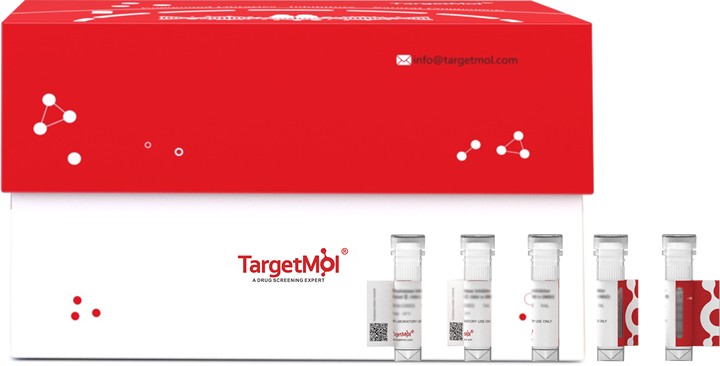Shopping Cart
- Remove All
 Your shopping cart is currently empty
Your shopping cart is currently empty

PRKAB1 Protein, Mouse, Recombinant (His) is expressed in E. coli expression system with N-6xHis tag. The predicted molecular weight is 36.1 kDa and the accession number is Q9R078.

| Pack Size | Price | Availability | Quantity |
|---|---|---|---|
| 20 μg | $360 | 20 days | |
| 100 μg | $745 | 20 days | |
| 1 mg | $2,530 | 20 days |
| Biological Activity | Activity has not been tested. It is theoretically active, but we cannot guarantee it. If you require protein activity, we recommend choosing the eukaryotic expression version first. |
| Description | PRKAB1 Protein, Mouse, Recombinant (His) is expressed in E. coli expression system with N-6xHis tag. The predicted molecular weight is 36.1 kDa and the accession number is Q9R078. |
| Species | Mouse |
| Expression System | E. coli |
| Tag | N-6xHis |
| Accession Number | Q9R078 |
| Amino Acid | GNTSSERAALERQAGHKTPRRDSSGGAKDGDRPKILMDSPEDADIFHSEEIKAPEKEEFLAWQHDLEANDKAPAQARPTVFRWTGGGKEVYLSGSFNNWSKLPLTRSQNNFVAILDLPEGEHQYKFFVDGQWTHDPSEPIVTSQLGTVNNIIQVKKTDFEVFDALMVDSQKCSDVSELSSSPPGPYHQEPYMSKPEERFKAPPILPPHLLQVILNKDTGISCDPALLPEPNHVMLNHLYALSIKDGVMVLSATHRYKKKYVTTLLYKPI |
| Construction | 2-270 aa |
| Protein Purity | > 85% as determined by SDS-PAGE. |
| Molecular Weight | 36.1 kDa (predicted) |
| Endotoxin | < 1.0 EU/μg of the protein as determined by the LAL method. |
| Formulation | Tris-based buffer, 50% glycerol |
| Reconstitution | A Certificate of Analysis (CoA) containing reconstitution instructions is included with the products. Please refer to the CoA for detailed information. |
| Stability & Storage | Lyophilized powders can be stably stored for over 12 months, while liquid products can be stored for 6-12 months at -80°C. For reconstituted protein solutions, the solution can be stored at -20°C to -80°C for at least 3 months. Please avoid multiple freeze-thaw cycles and store products in aliquots. |
| Shipping | In general, Lyophilized powders are shipping with blue ice. Solutions are shipping with dry ice. |
| Research Background | Non-catalytic subunit of AMP-activated protein kinase (AMPK), an energy sensor protein kinase that plays a key role in regulating cellular energy metabolism. In response to reduction of intracellular ATP levels, AMPK activates energy-producing pathways and inhibits energy-consuming processes: inhibits protein, carbohydrate and lipid biosynthesis, as well as cell growth and proliferation. AMPK acts via direct phosphorylation of metabolic enzymes, and by longer-term effects via phosphorylation of transcription regulators. Also acts as a regulator of cellular polarity by remodeling the actin cytoskeleton; probably by indirectly activating myosin. Beta non-catalytic subunit acts as a scaffold on which the AMPK complex assembles, via its C-terminus that bridges alpha (PRKAA1 or PRKAA2) and gamma subunits (PRKAG1, PRKAG2 or PRKAG3). |

Copyright © 2015-2025 TargetMol Chemicals Inc. All Rights Reserved.